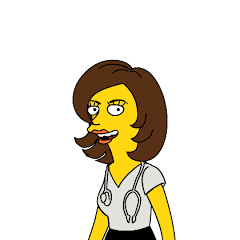Anyway, here's the article:
Good News About Coffee: Filtering the Facts
Coffee lovers may be raising their cups—and perhaps eyebrows—at the recent news (in the Journal of Agricultural and Food Chemistry) that the drink contains soluble fiber, the type that can help lower cholesterol. With about 1 gram per cup, coffee’s fiber impact is modest. But the report is the latest in a growing stream of positive news about coffee.
Some of the most promising findings come from studies of diabetes. When Harvard researchers combined data from nine studies involving more than 193,000 people, they found that regular coffee drinkers had a significantly lower risk of type 2 diabetes than those who abstained. The more they drank, the lower their risk.
And, despite coffee’s reputation for being bad for the heart, recent epidemiologic studies haven’t found a connection; some even suggest coffee can be protective. A study in February’s American Journal of Clinical Nutrition reported that healthy people 65 and over who drank four or more cups of caffeinated beverages daily (primarily coffee) had a 53 percent lower risk of heart disease than non-coffee-drinkers.
It’s even more beguiling when you consider that the immediate effects of drinking coffee tend to go in the opposite direction, raising heart rate and blood pressure and temporarily making cells more resistant to insulin. “But those effects are probably short-lived, as people develop a tolerance,” explains Frank Hu, M.D., Ph.D., associate professor of nutrition and epidemiology at Harvard School of Public Health, who has studied coffee extensively. “In the long term, beneficial components in coffee may have stronger, more lasting effects.”
How coffee might work isn’t clear; the studies weren’t designed to identify cause-and-effect relationships. Antioxidants, such as chlorogenic acid (related to polyphenols in grapes), are likely players: coffee has more of them per serving than blueberries do, making it the top source of antioxidants in our diets. Antioxidants help quell inflammation, which might explain coffee’s effect in inflammation-related diseases like diabetes and heart disease. Magnesium in coffee might help make cells more sensitive to insulin. And caffeine seems to have its own beneficial effects; the diabetes studies found that those who drank regular coffee had lower risks of the disease than decaf drinkers. Caffeinated-coffee drinking has also been linked with reduced risk of Parkinson’s disease, gallstones, cirrhosis and liver cancer.
Bottom Line: For healthy adults, having two or three cups of joe daily generally isn’t harmful and it may have health perks.

2 comments:
And coffee breath is SO sexy! Right?
That's what gum is for! :)
Post a Comment